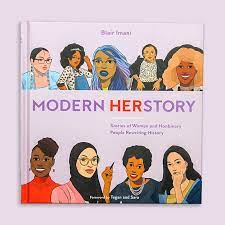Chapter 1
Laying the Groundwork
In the days before the United States sent Neil Armstrong and Buzz Aldrin to the moon, calls for justice were ringing out in the streets of New York City. The year was 1969. Only five years had elapsed since the Civil Rights Act of 1964 became law and prohibited discrimination based on race, color, religion, sex, or national origin in public institutions. Unfortunately, even as landmark civil rights legislation sought to provide legal protections to marginalized groups, little had changed. For America’s people of color, women, LGBTQ individuals, and those at the intersections, the era that took man to the moon did not bring lasting change for everyone. In spite of this, a number of leaders were paving the way for acceptance of all people and changing the cultural conversation about race, gender, and civil rights. These pioneers became some of the first women of color to advance in their fields- engineers and mathematicians, policy makers, Broadway playwrights, and activists. Even as forces of discrimination- like segregation and hate- worked against them, these dynamic women made important efforts to advance equality, and without their work, the efforts of today’s activists might not be possible. To truly understand the accomplishments of these women, it is imperative to understand the institutional barriers they fought against and the historical context from which they emerged. As we fight against oppression like our foremothers, we can envision a future where everyone can reach the stars. In “Laying the Groundwork”, we will learn about activists, cultural icons, elected officials, and scientists of the mid-twentieth century who work laid the foundations of the modern-day activist movements.
Sylvia Rivera & Marsha P Johnson
In 1969, the modern day Lesbian, Gay, Bisexual, Transgender, and Queer (LGBTQ) Rights Movement was born at the Stonewall Inn in New York City. At the helm of the movement were two transgender women of color, Marsha P Johnson and Sylvia Rivera. These revolutionaries fought for LGBTQ equality at a time when the American Psychological Association considered homosexuality to be a mental illness. Even within the movement that the two made a lifelong efforts to advance, Marsha and Sylvia were cast to the margins of the community and largely erased from its history.
Comprehension Questions
1. When was the LGBTQ Rights Movement born?
A. 1969
B. 1968
C. 1970
A. Detroit
B. New York City
C. Washington DC
Your Thoughts
Vocabulary
4. List any vocabulary words below.

